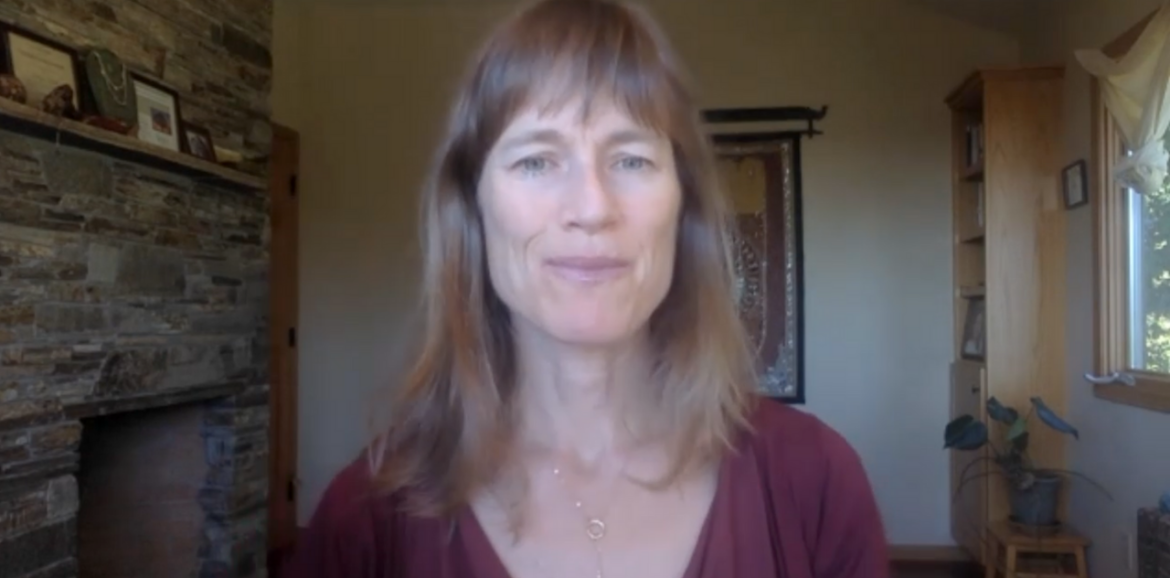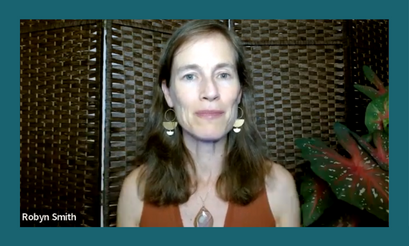Trauma Affects the Body
When there’s trauma, whether a shock or complex trauma, the nervous system is deeply affected. I’ll share a little bit about the nervous system and we’ll look at how it’s related to trauma.
Our autonomic nervous system is comprised of the sympathetic and parasympathetic nervous systems. The sympathetic nervous system controls our heart rate, like when we exercise. It also stimulates the Fight or Flight response when we are scared or feel threatened. The parasympathetic nervous system controls digestion and slowing the heart rate for rest. It is also associated with freezing and shutting down.
When trauma happens, we first will try to flee. If that doesn’t work, we’ll fight. If that’s not possible, we will shut down, like a faint. In our bodies, we don’t seem to know how to disperse the energy of trauma, so the nervous system can get stuck in one position –the Fight, Flight, Freeze or shut down.
Getting Stuck
In general, we can get stuck on ON, where we’re in Fight or Flight or stuck on OFF, where we’re shut down.
- ON = hypervigilance, fear, high strung, anxious, agitated, argumentative, annoyed
- OFF = apathetic, down, depressed, lethargic, expressionless, collapsed
This happens in shock trauma as a way to self-protect as well as in complex trauma.
Trauma Over Time
When there’s complex trauma that happens over a longer period of time, we get habituated to this state. Some examples are:
- Always hiding from the big energy of your father’s outbursts.
- Feeling like you have to stay small so you don’t take up too much space and get in trouble.
- Trying to always be seen, because you were neglected, so you take up a lot of space, talking loudly, being dramatic, etc.
- Or, you were bullied so you had to run or fight a lot to self-protect.
Common Treatment Styles
Some approaches are very cognitive.
Like therapy - if you just focus on figuring out what happened, why you acted the way you did, why you were treated the way you were and strategize forward for how you can do things differently, you’re staying in your cognitive brain. You’re not engaging your nervous system or your body.
Like meditation- working with visualization, settling, observing thoughts. This doesn’t necessarily address the nervous system or emotions and can even be agitating. Too much quiet can be uncomfortable and very unsettling.
Some approaches are very body-oriented like yoga, movement and breathwork.
Where We Want to Be
Where we want to be is in the middle, flowing between highs and lows and able to socially engage. So, when we work with trauma, we want to keep this in mind, what’s happening in the system? Are we attentive? Tuning out? Getting aroused? Becoming more relaxed? Becoming more present?
There have been more intense/harsh methods that can re-traumatize like exposure therapy, or cathartic styles like psycho drama, hitting the pillow, intense styles of yoga, breathwork, even meditation which can move some energy but can also create agitation in the nervous system. That is why some people can’t meditate or even do pranayama because it just stirs stuff up too much.
An Inclusive Approach
How I work with my clients is very respectful and mindful of the nervous system. It is slow and attentive, integrating the power of the soma (the body) along with the power of the intellect. Both need to be there for lasting transformation!
Please tell a friend if you found this helpful. Tell your friends to find us in the Healthy Relationships Sisterhood Facebook group or to find me on Instagram @robyn.smith.relationshipcoach. You could send them to my website at consciousthrivingrelationships.com and they can hook up with me that way as well. I look forward to seeing you soon. Bye for now.
Join my Facebook group, the Healthy Relationships Sisterhood for free weekly trainings here: https://www.facebook.com/groups/consciousthrivingrelationships







